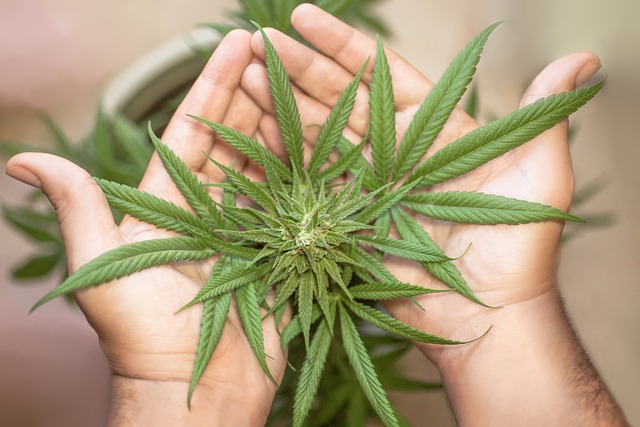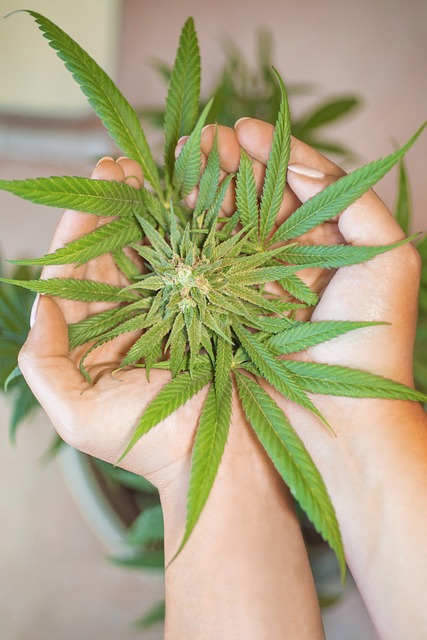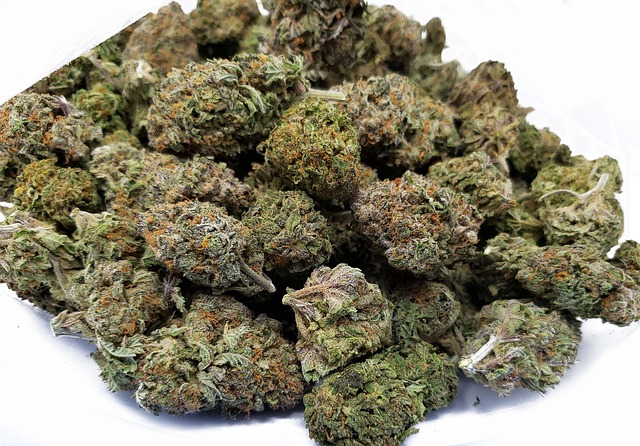The article examines the therapeutic benefits of Indacloud thca flower, a non-psychoactive cannabinoid found in the cannabis plant and precursor to THC. It possesses potent anti-inflammatory compounds that have caught the attention of scientific and medical communities for its potential to alleviate inflammatory conditions without psychoactive side effects. Studies indicate that THCA interacts with the endocannabinoid system, which plays a crucial role in regulating pain and inflammation, offering therapeutic benefits for those suffering from inflammatory disorders. Beyond its anti-inflammatory properties, THCA flower also exhibits neuroprotective and antioxidant effects, making it an area of significant interest for treating neurological conditions affected by oxidative stress. The article calls for further clinical research to fully realize the efficacy of THCA flower in treatment protocols, noting its potential as a natural therapeutic alternative. Keywords: THCA flower anti-inflammatory compounds.
Discover the multifaceted benefits of THCA flower, a natural source of potent anti-inflammatory compounds. This article explores its therapeutic properties, delving into how raw cannabis can offer relief beyond traditional psychoactive effects. While its potential is vast, it’s crucial to navigate the safety and side effects associated with its use. Join us as we demystify the science behind THCA flower and guide you through a responsible approach to incorporating this botanical wonder into your wellness routine. Looking for thca flower near me
- Unveiling the Potential of THCA Flower: A Closer Look at Its Anti-Inflammatory Compounds
- The Science Behind THCA Flower: How It Combats Inflammation Naturally
- Exploring the Therapeutic Properties of Raw Cannabis: Beyond the Psychoactive Effects
- Navigating Safety and Side Effects: Understanding Your Relationship with THCA Flower
Unveiling the Potential of THCA Flower: A Closer Look at Its Anti-Inflammatory Compounds

Unveiling the potential of THCA flower, a precursor to delta-9 tetrahydrocannabinol (THC), has garnered significant attention within the scientific and medical communities due to its unique anti-inflammatory compounds. Tetrahydrocannabolic acid (THCA) is the raw cannabinoid found in the cannabis plant, known for its non-psychoactive properties. Studies have highlighted that THCA possesses a robust profile of anti-inflammatory effects, which can be beneficial in addressing various inflammatory conditions without the psychoactive impact associated with its decarboxylated form, THC. Researchers have identified anandamide and 2-AG as endocannabinoids that play a crucial role in regulating pain and inflammation within the body’s systems. The anti-inflammatory compounds present in THCA flower are believed to interact with the body’s endocannabinoid system, potentially offering therapeutic relief for those suffering from inflammatory disorders.
Furthermore, the anti-inflammatory properties of THCA are not its sole attribute; it also exhibits neuroprotective and antioxidant effects. These properties make THCA flower a subject of interest for neurological diseases and conditions where oxidative stress is a significant factor. The exploration into these compounds continues to reveal their potential, suggesting that THCA may be used as a natural therapeutic option for inflammatory ailments, warranting further clinical investigation to fully understand its efficacy and optimal usage in various treatment protocols.
The Science Behind THCA Flower: How It Combats Inflammation Naturally

Research into the therapeutic properties of cannabis has led to a growing understanding of its potential anti-inflammatory effects, particularly through its non-psychoactive compound, THCA, or tetrahydrocannabinolic acid. The thca flower, which is rich in this cannabinoid, offers a natural approach to combating inflammation. THCA’s anti-inflammatory action is attributed to its interaction with the body’s endocannabinoid system. This system plays a crucial role in regulating various physiological processes, including pain and immune responses. Studies have indicated that THCA can inhibit certain pro-inflammatory cytokines, which are proteins used by your body’s immune system to communicate and coordinate the response to inflammation. By doing so, it may provide relief for individuals suffering from conditions characterized by chronic inflammation, such as arthritis or colitis. The anti-inflammatory compounds found in THCA flower are not psychoactive, which means they can offer these benefits without the high associated with its psychoactive counterpart, THC. This aspect is particularly appealing for those seeking therapeutic relief from inflammation while maintaining cognitive clarity and functionality. As research continues to evolve, the potential applications of THCA flower in natural medicine expand, offering a promising alternative for managing inflammatory-related conditions.
Exploring the Therapeutic Properties of Raw Cannabis: Beyond the Psychoactive Effects

Raw cannabis, particularly in its flower form, has garnered attention for its therapeutic properties that extend beyond psychoactive effects. One of the key non-psychoactive compounds found in high concentrations in raw cannabis flower is THCA, or tetrahydrocannabinolic acid. While THC, its decarboxylated form, is well-known for its psychotropic properties when heated and inhaled, THCA exhibits a unique profile with potential health benefits. Research suggests that THCA may possess anti-inflammatory effects, which could be beneficial for individuals suffering from inflammatory conditions. This anti-inflammatory property is attributed to the way THCA interacts with the body’s endocannabinoid system, potentially offering relief without the mind-altering impact of its psychoactive counterpart. Furthermore, studies indicate that THCA may also contribute to neuroprotection and could have a role in supporting overall brain health. This is particularly promising for those seeking alternatives to manage inflammatory pain or neurodegenerative symptoms without the psychoactive component associated with traditional cannabis use. The exploration of THCA flower’s therapeutic properties is an emerging field, with ongoing research continuing to unveil its potential roles in health and wellness. As such, raw cannabis flower rich in THCA is being increasingly recognized for its anti-inflammatory compounds and other beneficial effects.
Navigating Safety and Side Effects: Understanding Your Relationship with THCA Flower

When integrating THCA flower into your wellness regimen, it’s crucial to approach its use with an informed perspective on safety and potential side effects. THCA, or tetrahydrocannabinolic acid, is the raw form of THC found in hemp and cannabis plants. While THCA itself is non-psychoactive, it’s known to convert into THC upon heating, which may produce psychoactive effects. One of the prominent features of THCA is its anti-inflammatory properties, making it a subject of interest for those seeking natural relief from inflammation and pain. Users should be aware that while THCA flower can offer these benefits, individual responses to cannabinoids can vary significantly.
Before incorporating THCA flower into your routine, consider consulting with a healthcare professional, especially if you have pre-existing health conditions or are taking other medications. This step is essential to understanding how THCA might interact with your body and to ensure that its use aligns with any treatments you are undergoing. Side effects associated with THCA are generally mild but can include dry mouth, red eyes, and a potential for psychoactive effects if the THCA degrades into THC upon decarboxylation. Additionally, some individuals may experience drowsiness or mild gastrointestinal upset. It’s important to start with a low dose and monitor your body’s response, adjusting as necessary to maintain safety and optimize well-being. By doing so, you can navigate the potential benefits of THCA flower while minimizing any adverse effects.
In conclusion, the exploration of THCA flower’s anti-inflammatory compounds and therapeutic properties presents a compelling case for its potential benefits. While the natural anti-inflammatory effects of this cannabinoid are promising, it is imperative to approach its use with caution, considering individual sensitivities and interactions with other medications. As with any substance, understanding the safety profile and potential side effects is crucial for informed decision-making. Users should be aware that while the THCA flower may offer health benefits, it is not without its considerations, particularly when consumed in large quantities or combined with other cannabinoids. It is always recommended to consult with healthcare professionals before integrating THCA flower into one’s wellness regimen, ensuring a balanced and responsible approach to this plant’s therapeutic potential.
